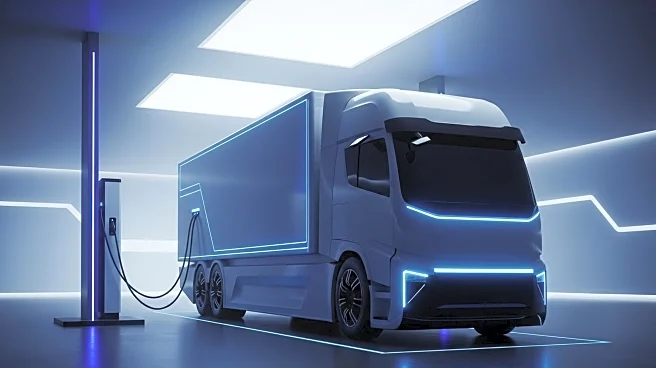What's Happening?
ZM Trucks, a company focused on electric vehicle (EV) fleet solutions, is facing challenges due to tariffs imposed by the Trump administration on materials needed for truck manufacturing. These tariffs have created geopolitical hurdles for ZM Trucks, which had announced its North American plans at the Advanced Clean Transportation Expo in May 2024. The company aims to achieve cost parity with traditional work trucks, but federal assistance has dwindled following the signing of the One Big Beautiful Bill Act by President Trump. This act has phased out federal EV tax credits, impacting the transportation industry's shift towards decarbonization. Despite these challenges, ZM Trucks continues to focus on total cost of ownership and return on investment for fleets, rather than solely on environmental benefits.
Why It's Important?
The reduction in federal support for electric vehicles and the imposition of tariffs on essential materials could slow down the adoption of EVs in the U.S. commercial vehicle market. This situation affects not only companies like ZM Trucks but also the broader push towards decarbonization in the transportation sector. The rollback of regulations and incentives may lead to a slower transition to zero-emission vehicles, impacting environmental goals and the competitiveness of U.S. companies in the global EV market. Stakeholders in the EV industry, including startups and traditional manufacturers, may face increased costs and uncertainty, potentially hindering innovation and investment in clean transportation technologies.
What's Next?
As the market adjusts to these regulatory changes, companies like ZM Trucks may need to explore alternative strategies to maintain competitiveness. This could involve seeking new partnerships, investing in cost-reduction technologies, or advocating for policy changes that support the EV industry. The broader industry may also see shifts in investment priorities, with some companies focusing more on internal combustion engines while others continue to push for electrification. The response from state governments, particularly those with strong decarbonization goals, could also influence the future landscape of the U.S. EV market.










